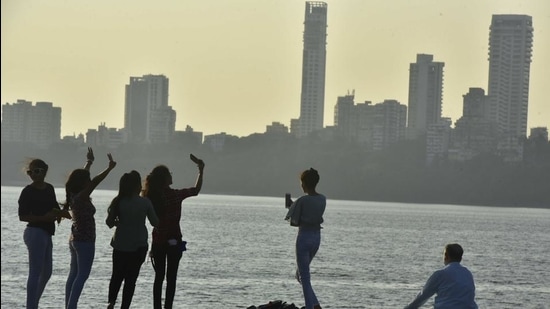Island tourism, deep-sea mining highlights of India’s Blue Economy policy
The highlights of the policy include an accounting framework to assess the growth of the blue economy; mapping of India’s coastal zones for integrated coastal and marine spatial plans
India is working on a Blue Economy Policy that plans to boost island tourism, marine biotechnology, deep-sea mining and the ocean energy sector through innovative financing and business models, according to a draft of the policy released by the ministry of earth sciences on Monday for public feedback.

The highlights of the policy include an accounting framework to assess the growth of the blue economy; mapping of India’s coastal zones for integrated coastal and marine spatial plans; and dealing with marine pollution, particularly by microplastics and plastics.
Promotion of aqua culture, seaweed and algae harvesting and sustainable marine capture; marine biotechnology for non-food sectors; a boost to the economy and employment through development of ports, fisheries, ship building and coastal and cruise tourism (including island tourism and development) are other aspects of the policy. The last date for public comment on the draft is February 27.
“A quantum and qualitative boost to all of these would be given by suitable schematic initiatives and by encouraging the private sector to invest in new business opportunities. The new and emerging areas such as marine biotechnology, deep-sea mining and ocean energy will be promoted. Innovative financing and business models will be explored for these emerging sectors since they are capital intensive,”says the draft policy published on the India Meteorological Department’s website.
The policy also underlines the need for marine clusters for port-led development as already conceptualised in the Sagarmala programme of the Centre. The ship building industry would be promoted and modernized in 30 years with a focus on Make in India and Aatmanirbhar Bharat (Self-Reliant India) initiatives.
The policy also speaks of marine diplomacy with engagements with neighbouring countries to safeguard strategic interests. One such emerging economic and strategic axis spreads from the East Coast of Africa to the Western Pacific Ocean, which can be called the Seychelles-Singapore-Samoa (SSS) axis, it states.
“The draft policy aims to significantly enhance the contribution of the Blue Economy to India’s GDP in the next five years, improve lives of coastal communities, preserve our marine biodiversity and maintain the security of our marine areas and resources. Today, the Blue Economy holds the promise of being the next multiplier of economic growth and well-being, provided that the strategy places sustainability and socio-economic welfare at the centre stage,” the draft concludes.
The Economic Advisory Council to the Prime Minister (EAC-PM) has put together the draft policy based on recommendations of seven working groups under the Blue Economy initiative.
India has a unique maritime position. Its 7,517km-long coastline is home to nine coastal states and 1,382 islands. India has 12 major ports and 187 non-major ports, handling about 1,400 million tons of cargo every year, as 95% of India’s trade by volume transits by sea.
India’s Exclusive Economic Zone of over two million square kilometers is rich in living and non-living resources and holds significant recoverable resources of crude oil and of recoverable natural gas. The coastal economy also sustains over 4 million fishermen and other coastal communities, the policy says.
“The draft policy brings together several existing economic priorities that have long footprint in coastal and marine areas i.e. island tourism, port led development, deep-sea mining and frames as blue economy. It has two main focus areas, building over coastal lands and extracting from the sea. It pays mere lip service to the environment question and does not address the impacts on coastal livelihoods. In effect the draft document will give the policy justification to several changes that area underway to make way for the priorities envisaged in the text. Changes to regulations, approval of new projects and acquisition of land draw their mandate from policy documents of this nature, none of which has been initiated, assessed, disclosed by the government so far,” said Kanchi Kohli, legal researcher, Centre for Policy Research, responding to the draft policy.
Get Current Updates on India News, Lok Sabha Election 2024 live, Infosys Q4 Results Live, Elections 2024, Election 2024 Date along with Latest News and Top Headlines from India and around the world.



